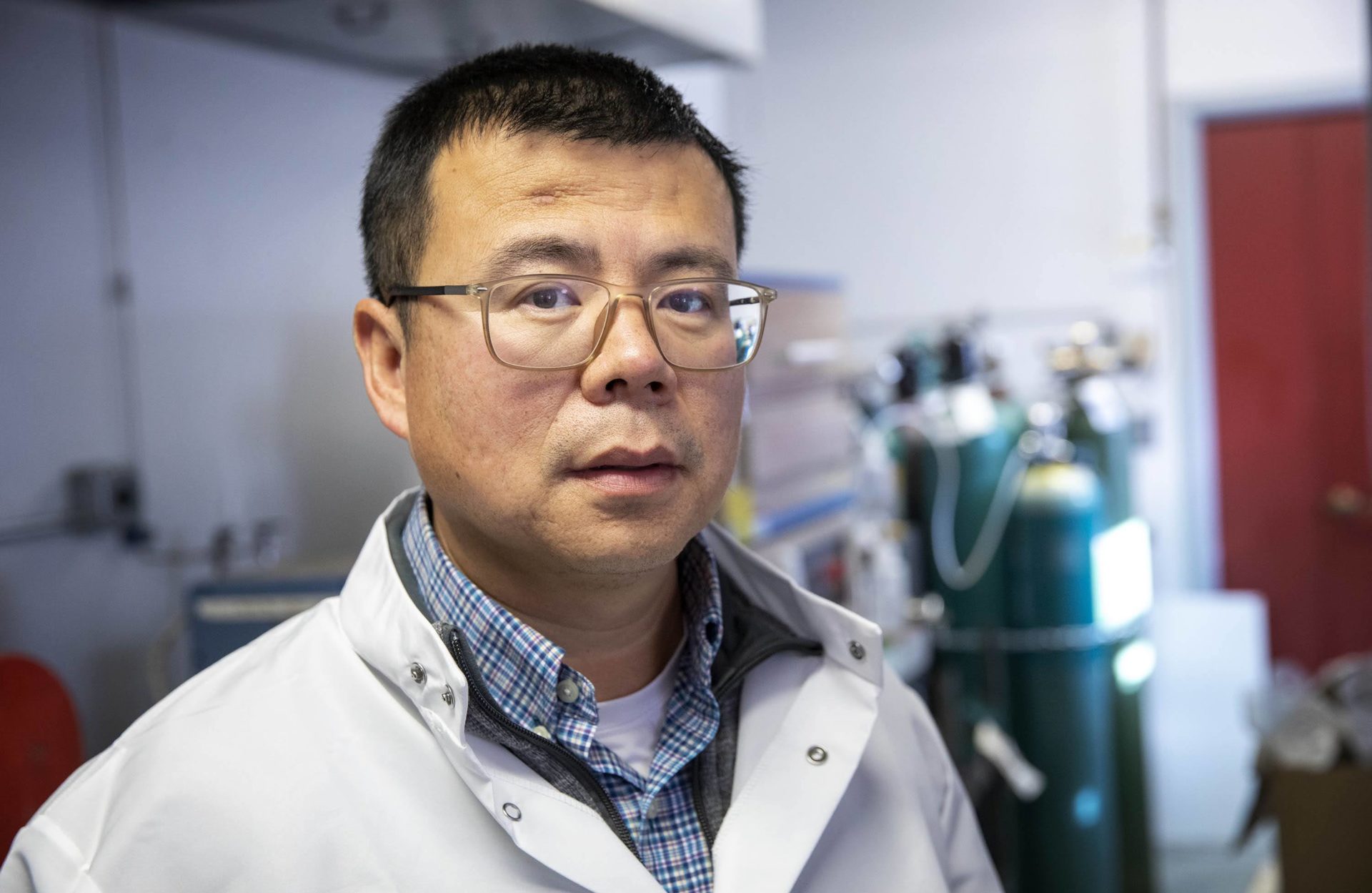Mass. startup transforms old electric car batteries into better-than-new ones

Professor of Mechanical Engineering Yan Wang at his laboratory at Worcester Polytechnic Institute. (Robin Lubbock/WBUR)
The switch to electric vehicles is accelerating worldwide. There are about 10 million battery-powered vehicles on the road today, and by the end of the decade, the International Energy Agency predicts there could be 230 million.
But there’s a problem down the road. All those EVs are powered by batteries, and when they come to end of their life cycles, they could end up as toxic trash.
The world needs better ways to deal with dead batteries.
Now, a Massachusetts startup has a unique solution that gives the worn-out energy cells new life, making EVs more sustainable — and cheaper, too.
Ascend Elements claims it can turn spent lithium-ion batteries into ones that are better than new — longer-lasting, faster-charging and less-polluting. The recycled energy cells could also provide the U.S. with an added measure of energy independence.
Driving Change
Lithium-ion batteries are in the vast majority of electric cars and trucks. Lithium is what scientists call “energy dense,” packing a powerful punch relative to its size and weight. But the battery name is misleading.
“Ironically, lithium is not the most important material in a lithium-ion battery,” says Jeffrey Spangenberger, director of Argonne National Laboratory’s ReCell Center, which works to advance battery-recycling technologies.
Nickel, graphite, manganese and cobalt are also important, Spangenberger says, especially cobalt, the most expensive material in EV batteries. It’s one reason the batteries are the costliest part of an electric vehicle.
Those metals are mostly mined overseas. Australia and South America have vast lithium deposits, but the extraction process uses billions of gallons of water a year and can devastate the environment. The largest reserves of cobalt are found in the Democratic Republic of the Congo, where miners have faced working conditions that violate human rights.
The mined minerals are largely processed in China and then shipped to the rapidly growing number of factories around the world that produce EV batteries.
That long and uncertain supply chain is also a growing strategic concern for the U.S. So, reclaiming the valuable metals in spent EV batteries is becoming a national priority.
“Without [battery] recycling, electric vehicles are going to be a challenge to get off the ground,” says Spangenberger. Argonne’s ReCell Center, part of the Department of Energy, is collaborating with academic institutions and companies to find new ways to reclaim and reuse the valuable battery metals.
One of those research facilities is professor Yan Wang’s lab at Worcester Polytechnic Institute.
For centuries, high-temperature furnaces have been used to smelt metals, separating out the desired components. About 10 years ago, Wang and postdoctoral student Eric Gratz began investigating an entirely new process.
“Not many people were working on [battery] recycling,” says Wang. “But today, lithium battery recycling is one of the hottest topics in the battery field.”
Read the rest of this story and hear the audio version at WBUR.org.
